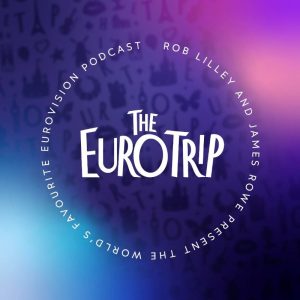On the latest episode of The Euro Trip, Irish Head of Delegation Michael Kealy confirms he would be “delighted” if Ireland was represented by a song in the Irish language at Eurovision.
Kealy answered an invitation from The Euro Trip to sit down for an exclusive interview to talk about Eurovision and specifically RTE’s plans for next year’s contest in Turin.
When asked by The Euro Trip presenter James Rowe if he’d like to see the Irish language at Eurovision again, Kealy said: “Yes is the easy answer to that. It’s all down to the song. I would be delighted to go to Eurovision with an Irish language song that could compete at that level.
“The problem is that most people write in the English language. There are one or two [Irish language songs] in the 320 songs [that have been submitted for 2022], so the odds of one of those songs being chosen is going to be low this year but I certainly wouldn’t rule it out for the future.
‘Ceol an Ghrá’ was Ireland’s first and only Eurovision entry sung in the Irish language. It was performed by Sandie Jones when Eurovision was hosted in Edinburgh back in 1972. The song came 15th at the contest.
Kealy revealed to The Euro Trip what the process for RTE looked like after the submission window for songs closed: “So what I’ve done is assembled a panel of around 12 people to shortlist them [320 songs].
“Each of us is coming up with our top 20 or 30 that we’re going to put into a long list and we’ve nearly got that process completed. Then I’m going to put together a panel of about 20-25 people and that will be people who work in the music business, television and radio. I’m involving a lot of fans this time because they’re a great part of Eurovision and they’re a resource that maybe we’ve underused in previous years.”
Asked if the quality of the songs submitted is good, Kealy said: “Well I won’t say most of them. Most of them are still from people who clearly don’t watch the competition. Everybody knows a song can’t be longer than three minutes – I got one song that was six minutes long.
“The standard of the ones that are good this year is very good. We will have no difficulty in getting five really good songs for the Late Late Eurovision special in January. The hardest part will be leaving the three or four other good ones behind.”
Kealy has worked for RTE for more than 25 years, starting out as a radio producer before becoming Director of Entertainment for the broadcaster in 2001 – a role he still carries out today.
Image Credit: Eurovision.tv / EBU / ANDRES PUTTING
